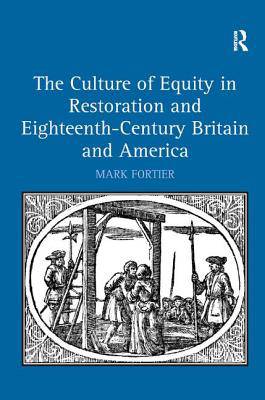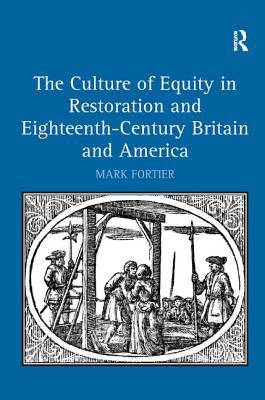
- Afhalen na 1 uur in een winkel met voorraad
- Gratis thuislevering in België vanaf € 30
- Ruim aanbod met 7 miljoen producten
- Afhalen na 1 uur in een winkel met voorraad
- Gratis thuislevering in België vanaf € 30
- Ruim aanbod met 7 miljoen producten
Zoeken
The Culture of Equity in Restoration and Eighteenth-Century Britain and America
Mark Fortier
Hardcover | Engels
€ 195,95
+ 391 punten
Uitvoering
Omschrijving
Drawing on politics, religion, law, literature, and philosophy, this interdisciplinary study is a sequel to Mark Fortier's bookThe Culture of Equity in Early Modern England (Ashgate, 2006). The earlier volume traced the meanings and usage of equity in broad cultural terms (including but not limited to law) to position equity as a keyword of valuation, persuasion, and understanding; the present volume carries that work through the Restoration and eighteenth century in Britain and America. Fortier argues that equity continued to be a keyword, used and contested in many of the major social and political events of the period. Further, he argues that equity needs to be seen in this period largely outside the Aristotelian parameters that have generally been assumed in scholarship on equity.
Specificaties
Betrokkenen
- Auteur(s):
- Uitgeverij:
Inhoud
- Aantal bladzijden:
- 162
- Taal:
- Engels
Eigenschappen
- Productcode (EAN):
- 9781472441867
- Verschijningsdatum:
- 28/12/2014
- Uitvoering:
- Hardcover
- Formaat:
- Genaaid
- Afmetingen:
- 156 mm x 233 mm
- Gewicht:
- 199 g

Alleen bij Standaard Boekhandel
+ 391 punten op je klantenkaart van Standaard Boekhandel
Beoordelingen
We publiceren alleen reviews die voldoen aan de voorwaarden voor reviews. Bekijk onze voorwaarden voor reviews.











